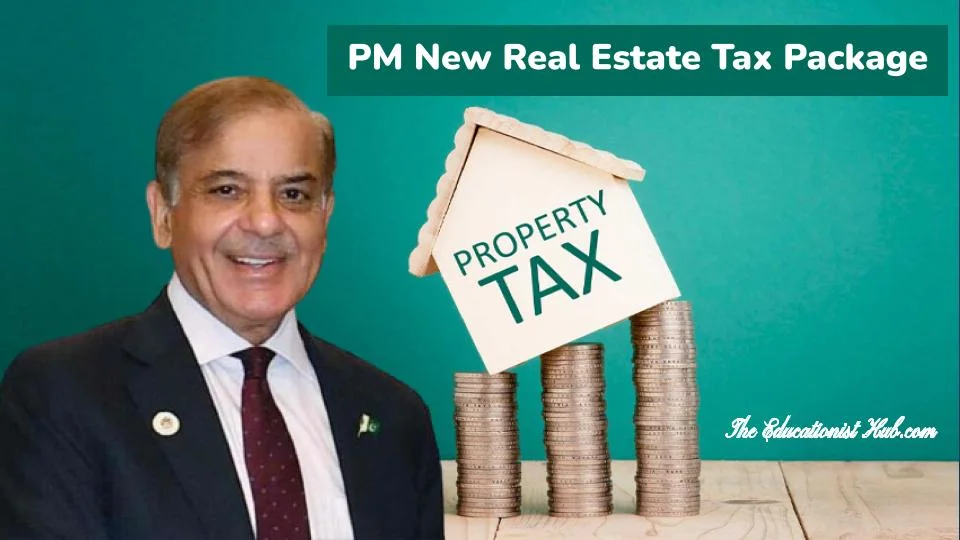Reports from Islamabad suggest the government of Pakistan probably won’t roll out a new tax package for real estate before the new fiscal year’s budget is announced.
The step comes amid pressures from different groups and an upcoming IMF review mission, leaving officials cautious about offering tax breaks tied to income declarations in property deals.
New Tax Package for Real Estate
Pakistan’s real estate market has long served as a channel for unreported funds, which makes it hard for tax collectors to do their work. The lure of big returns has shifted investments, moving money away from other sectors. Many have urged for changes, but officials are careful not to introduce big reforms until the IMF talks take place.
Also Check, Current Real Estate Market in Pakistan After General Elections 2024
Stock Market Moves and New Task Force
Reports last week indicated that rumors about possible property sector incentives triggered a decline on the Pakistan Stock Exchange. The KSE-100 index fell by about 4,000 points over the first three sessions, as investors worried that new property policies could shift funds from stocks.
To ease worries in property and construction circles, Prime Minister Shehbaz Sharif set up a task force made up of experts from the real estate field, developers, and builders. The group was asked to come up with changes to tax laws that could bring in more investment in property. Their final suggestions are now with the prime minister for review.
Main Proposals for the Real Estate Sector
One proposal calls for a waiver for certain property transactions. The idea is that buyers of properties worth up to Rs 50 million would not need to reveal where their income comes from. The group has also put forward scrapping Section 7E of the Income Tax Ordinance, 2001, which taxes assumed property income. Eliminating this section could lower the tax load and encourage more investment in property.
Another idea is to remove the Capital Value Tax (CVT) in Islamabad. The plan is to create a consistent tax policy across the country by involving the National Tax Council. This uniform approach to property taxes might bring fairness and consistency.
The team also wants stamp duty rates to be made the same in every province and in the Islamabad Capital Territory. They believe this move could help make property deals simpler for buyers and sellers everywhere.
The group has put forward a plan to drop the wealth reconciliation rules for investments up to Rs 50 million in property and construction. Officials expect this step could boost money flow into the sector, giving a lift to economic activity.
Also Read: Federal Budget for 2025-26 to Be Presented in June 2025
One key part of the suggestions calls for reviewing official property values every three years to match current market rates. Making sure these values stay in line with actual prices should reduce differences and make property deals clearer.
Government’s Position and IMF Talks
Sources say officials need the IMF’s nod as part of the Extended Fund Facility program. The IMF does not look kindly on tax amnesties, so getting support for real estate incentives might be tough. Officials plan to ask for the IMF’s blessing when they come for a review in March 2025.
If the IMF gives its approval, the lawmaking process and later parliamentary talks could delay any changes. With the yearly budget set for early June 2025, expect any tax breaks for the property sector to wait until after the next fiscal year’s budget.
Officials say they are determined to balance growth with careful spending, aiming to make sure any future property tax changes fit with Pakistan’s overall economic goals.
Prime Minister Shehbaz Sharif has delayed a decision on tax incentives for the real estate sector as key issues remain unresolved.
The Federal Board of Revenue (FBR) opposes a proposal to exempt first-time buyers from taxes on purchases up to Rs. 50 million, citing IMF restrictions. FBR Chairman Rashid Langrial rejected the plan, calling it a tax amnesty the IMF wouldn’t approve.
Discussions also covered lowering property transaction taxes and removing the 3% federal excise duty, though concerns remain about speculative investments. The government is reviewing interest rate subsidies for home loans.
Meanwhile, unregulated land conversions and fraudulent property sales continue to challenge the sector.

Researcher, Blogger, Content Writer, Online Marketing Expert, Aptitude Test & Admissions Expert, Career Counselor.
PEC REGISTERED. ENGINEER. (NED University of Engineering & Technology)
CEO / Founder (The Educationist Hub)

